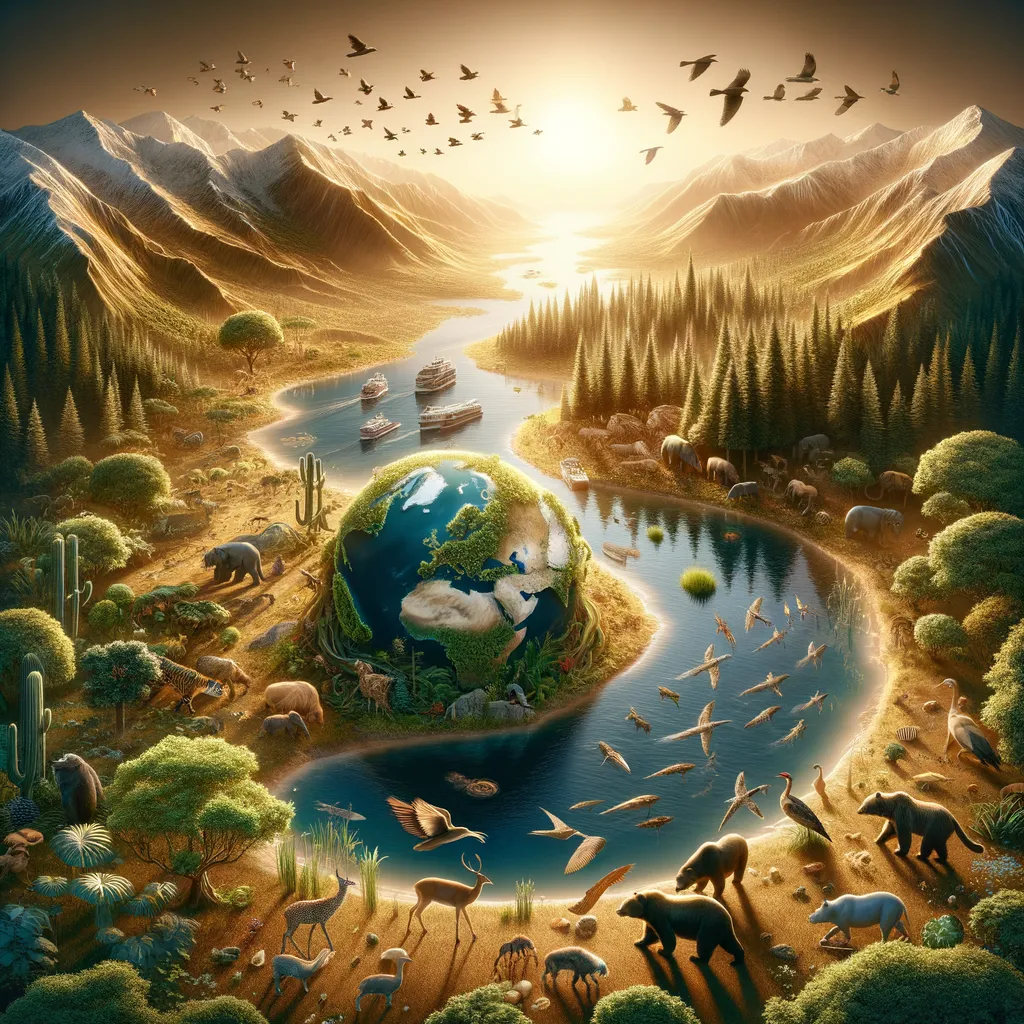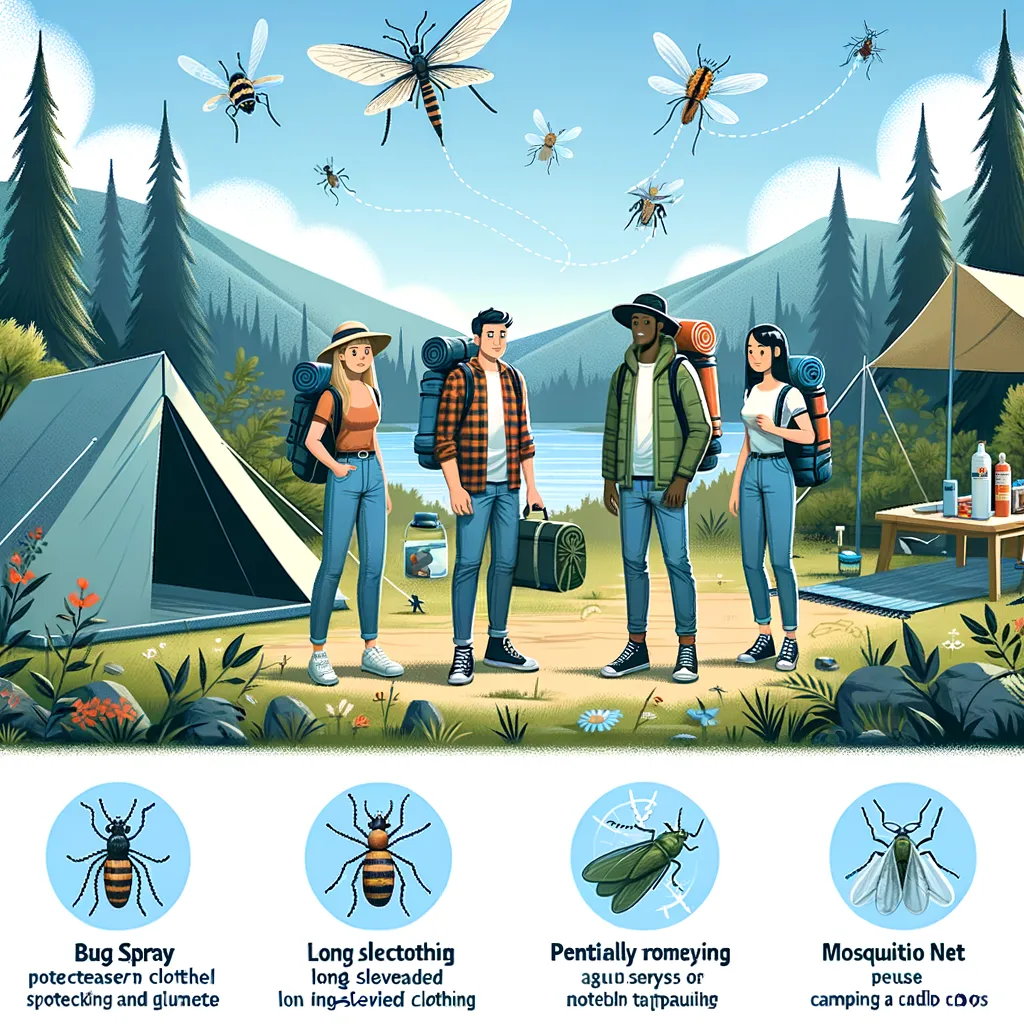Celebrating Global Victories in Conservation: A Guide for Parents
Welcome to our guide on Celebrating Global Victories in Conservation. This is a joyous exploration designed for parents who wish to instill in their children the value of our natural world and the importance of protecting it. In today’s fast-paced environment, it’s crucial to take a moment to acknowledge and celebrate the progress we’ve achieved in conserving our beautiful planet.
Taking your family Camping or providing them with enriching Camping Information can be a wonderful way to connect with nature and learn about the importance of conservation first-hand. But beyond personal experiences, there are global victories worth celebrating and learning from.
In this article, we will dive into some of the most significant conservation success stories from around the world, how they were achieved, and how you and your family can be part of this ongoing journey towards a greener, more sustainable future.
Understanding Conservation Success
Before we delve into these inspiring stories, let’s take a moment to understand what conservation success really means. Conservation efforts aim to protect, preserve, or restore ecosystems, species, and natural resources. Success in conservation can come in many forms, from the recovery of endangered species and the establishment of protected areas to the implementation of sustainable practices that benefit both the environment and the communities that depend on it.
For parents, teaching your children about these successes can foster a sense of hope and responsibility. It shows them that positive change is possible and that their actions, no matter how small, can contribute to a larger cause.
Global Conservation Victories Worth Celebrating
Now, let’s highlight some remarkable conservation victories that have made a difference in the world.
- The Revival of Endangered Species: Across the globe, concerted conservation efforts have helped to revive the populations of numerous endangered species. Programs focusing on habitat restoration, anti-poaching measures, and breeding programs have all contributed to this success.
- Expansion of Protected Areas: The increase in the number and size of protected areas around the world has been a significant win for conservation. These areas are crucial for preserving biodiversity and offering a sanctuary for wildlife.
- Sustainable Practices in Communities: Many communities worldwide have embraced sustainable practices that protect the environment while supporting their economies. From sustainable farming to eco-tourism, these practices demonstrate that development and conservation can go hand in hand.
These victories are not just wins for the environment; they are also wins for humanity. They exemplify the powerful impact of collaboration, dedication, and innovation in tackling some of the most pressing challenges of our times.
How Families Can Contribute to Conservation Efforts
Engaging in conservation as a family can be incredibly rewarding. Whether it’s learning about wildlife, participating in local clean-up efforts, or practicing sustainability at home, there are numerous ways for families to contribute to the well-being of our planet.
Here, we will explore practical tips and activities that can help your family become more involved in conservation, fostering a deeper connection with nature and with each other.
Stay tuned as we continue our guide into the myriad of ways parents and children alike can celebrate and contribute to the ongoing success stories in global conservation. Together, we can make a difference and ensure a prosperous, sustainable future for generations to come.

5 Essential Tips for Parents: How to Prepare for Celebrating Global Conservation Victories with Your Family
As parents eager to teach the importance of environmental conservation to our children, embracing global victories in this field presents a unique opportunity. Celebrating these achievements not only highlights the positive impacts of collective efforts but also inspires younger generations to contribute to the cause. To prepare for this celebration, here are five essential tips to ensure an enriching and educational experience for your family.
1. Educate Yourself and Your Family
Start by educating yourselves about the various conservation efforts worldwide. Utilize reputable sources to learn about the significance of protecting endangered species, the expansion of protected areas, and the adoption of sustainable practices in communities. Children are naturally curious, so answering their questions with facts will cultivate their interest and understanding of the subject. Interactive resources such as documentaries, educational apps, and books specifically about conservation efforts can be incredibly helpful.
2. Participate in Local Environmental Activities
Look for local conservation projects or activities in which your family can participate. This could be a beach clean-up, tree planting events, or wildlife conservation workshops. Participating in these activities not only contributes to the well-being of your local environment but also provides practical experiences for your children to learn the value of environmental stewardship. It’s a great way to spend time together as a family while making a positive impact on your community.
3. Practice Sustainable Living at Home
Implementing sustainable practices at home can significantly enhance your family’s contribution to conserving the environment. Simple actions like reducing water usage, recycling, composting, and switching to energy-efficient appliances can make a big difference. Encourage your children to be part of these changes by assigning them eco-friendly tasks around the house. This not only helps in nurturing a sense of responsibility but also shows them the impact of their actions on the planet.
4. Connect with Nature
Spend time outdoors to connect with nature. Whether it’s camping, hiking, or just a walk in the park, these experiences can help children develop a love and appreciation for the natural world. Real-world interactions with nature can be incredibly powerful in teaching children about the importance of conservation. It allows them to see, firsthand, the beauty of the environment they’re learning to protect.
5. Support Conservation Organizations
Finally, supporting organizations dedicated to conservation can be a meaningful way to contribute to global efforts. This can be through donations, volunteering, or even adopting an animal through wildlife protection programs. Many organizations offer educational materials and activities tailored for young learners, making it an excellent opportunity for them to learn more about global conservation efforts and how they can help.
Celebrating global victories in conservation is not just about acknowledging past successes; it’s about inspiring future action. By taking these steps to prepare your family, you’re not only educating them on the importance of environmental conservation but also showing them how they can play a part in it. It’s an opportunity to instill values of responsibility, empathy, and stewardship towards the planet that will stay with them for a lifetime. Engaging in these activities as a family strengthens bonds, creates lasting memories, and contributes to a greater cause, making the celebration of conservation victories all the more meaningful.
In conclusion, preparing your family to celebrate global victories in conservation offers a unique blend of education, engagement, and empowerment. By fostering a deeper connection with our planet, parents and children alike can contribute to a sustainable future, ensuring that the beauty and diversity of our world are preserved for generations to come. Let’s embrace these moments of celebration as stepping stones towards a greener, more sustainable future for all.
Disclaimer
The articles available via our website provide general information only and we strongly urge readers to exercise caution and conduct their own thorough research and fact-checking. The information presented should not be taken as absolute truth, and, to the maximum extent permitted by law, we will not be held liable for any inaccuracies or errors in the content. It is essential for individuals to independently verify and validate the information before making any decisions or taking any actions based on the articles.




